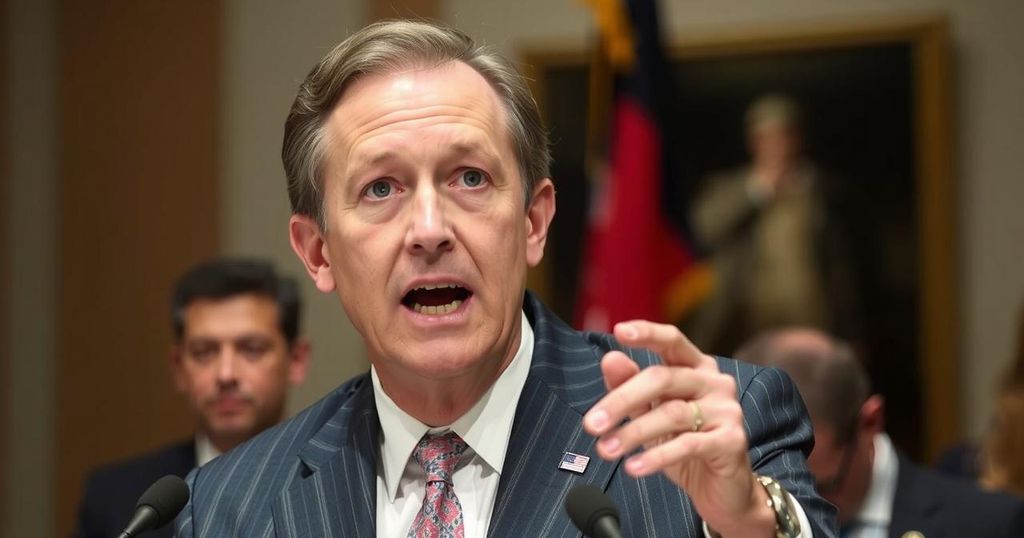Blinken Defends Afghanistan Withdrawal Amid GOP Criticism

Secretary of State Antony Blinken addressed Congress regarding the controversial U.S. withdrawal from Afghanistan, facing criticism for what Republicans deem a failed foreign policy. Blinken defended the withdrawal decisions amidst allegations that the situation escalated due to prior administrations’ actions, underscoring systemic failures that have drawn bipartisan reproach.
Secretary of State Antony Blinken appeared before the House Foreign Affairs Committee to address criticisms regarding the U.S. withdrawal from Afghanistan, described as a significant misstep in President Joe Biden’s foreign policy. Congressman Michael McCaul stated that the withdrawal was “the beginning of a failed foreign policy that lit the world on fire,” urging Blinken to take responsibility for the chaos that ensued. In response, Blinken expressed condolences to families affected by the withdrawal and reiterated the challenges faced, claiming that a withdrawal initiated by the previous administration left him with no viable alternatives to prevent escalating conflict with the Taliban.
During his testimony, Blinken defended the government’s actions, contending that Biden’s choice was limited to either concluding the war or escalating military involvement. He stated, “Had he not followed through on his predecessor’s commitment, attacks on our forces and allies would have resumed and the Taliban’s assault on the country’s major cities would have commenced.” The testimony occurred against the backdrop of fierce criticism from Republican lawmakers who issued a report blaming the Biden administration for the disastrous conclusions of the Afghanistan operation, while downplaying former President Donald Trump’s role in signing the withdrawal agreement.
The investigation highlighted systemic issues over multiple presidential administrations, acknowledging shared accountability between Presidents Biden and Trump for the withdrawal’s ramifications. The tumultuous exit left many American citizens, Afghan allies, and women activists vulnerable to Taliban reprisals following the rapid takeover of Afghanistan, raising serious questions about the strategic decisions implemented during both administrations.
The U.S. withdrawal from Afghanistan, completed in August 2021, marked the end of a two-decade military engagement initiated after the September 11 attacks. The withdrawal was primarily based on a deal negotiated by the Trump administration with the Taliban in 2020. Critics argue that the execution of the withdrawal under the Biden administration was flawed, resulting in a chaotic exit that endangered lives and destabilized the region. Bipartisan scrutiny has since emerged, with many investigations assessing the failed foreign policy from multiple angles.
In summary, Secretary Antony Blinken’s testimony highlighted the complexities and challenges faced during the U.S. withdrawal from Afghanistan. While he defended the Biden administration’s decisions, GOP critics emphasized the broader implications of the withdrawal and demanded accountability. Ultimately, the events underscore the intertwined legacies of the Biden and Trump administrations concerning Afghanistan and raise continual debates regarding U.S. foreign policy efficacy.
Original Source: www.news-herald.com







